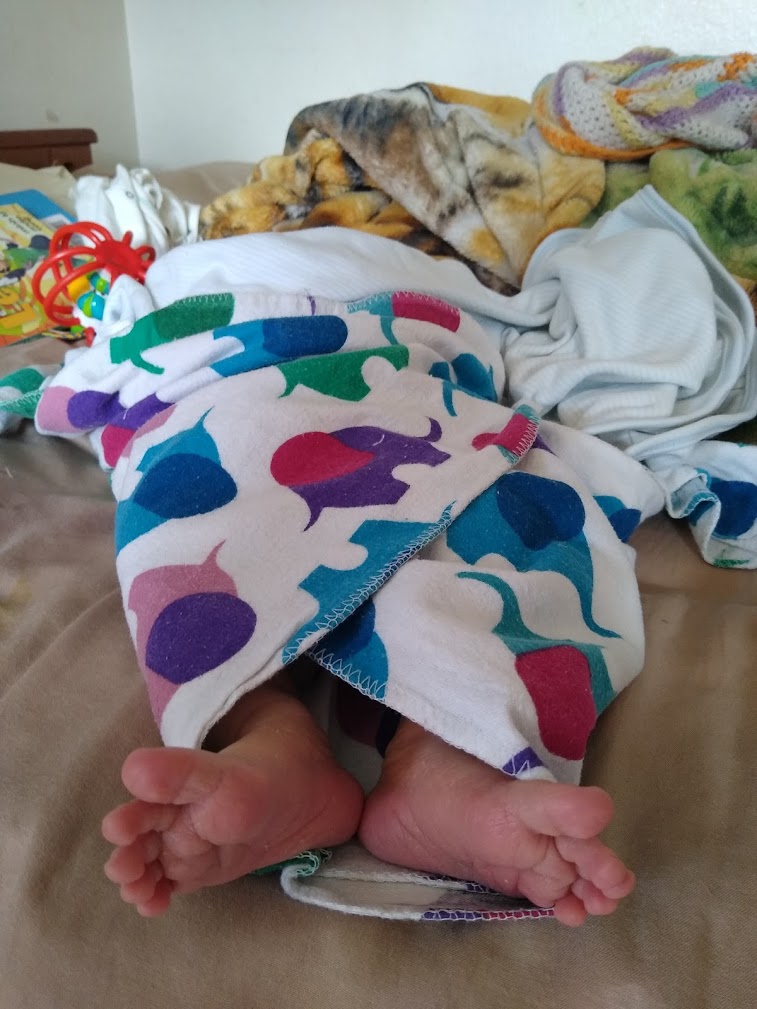Bringing your baby into this world is one of the most memorable times in your and your spouse’s lives. Usually, you will have many conversations upon finding out you’re pregnant about how and where you want to have your baby.
It’s important to know what is important to you as a mother, who will need to remain healthy throughout delivering your baby.
Of course, professionals will need to be present and that’s one great thing about homebirths in this day and age – you can birth in the comfort of your own home safely.
Pretty much all of the external factors, like, where to plan to have your baby or what you need for comfort during your labor are all generally up to you.
As a new mother, it can be especially difficult to key in on what aspects are going to make a difference to you during your experience of having your baby.
Even mothers who have already had multiple babies end up with an experience they weren’t expecting – it can’t always go as planned.
Of course, the most important thing regarding having your baby is that you and your baby navigate through this profound experience coming out safe and well on the other side.
This year especially many women are choosing to have a homebirth, and rightfully so. Mothers deserve to be where they have the coping tools necessary to have the birth of their dreams.
Let’s go over all of the most important ideas you might need to know if you’re planning to have a homebirth.
View in gallery
Get your significant other on board with your homebirth and plan this together
It’s a good idea to get your partner on board with your homebirth ideas. Have your spouse read this too; knowledge is power.
Your spouse is going to be one of your most important tools to your support system when you give birth – during one of the most profound times in each of your lives.
Read this homebirth guide together if possible, if not, your spouse can always chip away at it on his or her own time.
If this is your first homebirth it will be important to get your spouse on board with your personal idea behind what makes a homebirth possible for your family. That way you can both create the most comforting environment to have your baby beforehand.
By When do you have to decide to have a homebirth? is there a deadline?
Well, it’s technically up to you when you officially decide you’re having a homebirth – the sooner the better. Although, anytime after 38-weeks just doesn’t make any sense, there are requirements that need to be taken care of beforehand.
The earlier on that you make the decision to have your baby at home, the earlier you can formulate a plan with your midwives, spouse, and support system about the way you envision your homebirth to be.
You have to make up your mind at some point, and I would say when you’ve reached 35-weeks you are at the end of your time frame to make that decision concrete, your baby could come at any time from 37-weeks on.
Some babies are even born at 34-weeks so it’s important to make a decision and have a plan in place in case your water breaks or your contractions begin before 38-weeks.
At 38 weeks, you are medically considered to have a full-term pregnancy
By 38 weeks, you are medically considered to have a full-term baby on board.
View in gallery
This is what all midwives want you to reach before going into labor – being 38-weeks or further along during a homebirth provides the best outcome for lowering any chances of having a hospital transfer.
When your body is fully ready to give birth, labor and delivery tend to move along smoothly. Plus, by this time your baby is quite strong and capable of undergoing the natural stress of labor and delivery.
In Oregon(where I live) if you go into labor before 38-weeks you have to go to a hospital to have your baby. Check with the midwives in your state to see if this is the rule in your area, where you live it could be sooner or later.
Ensuring the earliest date in your pregnancy that you can invite your midwives into your home to assist with your labor and delivery, is the best practice.
Despite being a perfectly healthy female with no complications – unexpected things can happen at the end of pregnancy that might need to be ready for.
Whether you are paying out of pocket or using state insurance will change the deadline of having to choose a homebirth or hospital birth officially
If you’re on state insurance, the state requires that every pregnant woman has a certain number of tests done, before they will agree to pay for a homebirth.
These tests take time, so be sure to give yourself an adequate amount of time before choosing you will have a home birth.
Homebirth isn’t like a hospital birth where you can just show up at the birthing center anytime, and they will help you.
Of course, with home birth, your midwife will come to you at any time of the day or night to assist you with your birth, but your midwives need to be prepared to help you long before your labor begins.
This means that your midwife team needs to know you are nearing your delivery well in advance.
Close monitoring of you and your baby at the end of your pregnancy is very important if you decide to have a homebirth, this helps them get to know your baby and you.
View in gallery
Finding a midwife for prenatal care
Once you’ve decided that you’d like to go forward with a homebirth to have your baby, the next step will be to choose your medically certified support team.
In other words, it’s best to choose a medically certified midwife to assist you throughout your pregnancy, through your labor, and sometimes even after you give birth.
I’m sure you have plenty of questions about where to find a midwife and even who might be the best team for your family. I get it, there are so many factors to consider when you’re going to have a baby at home.
It’s best to start looking for your midwife as soon as you find out that you’re pregnant, that way she can monitor you throughout your pregnancy before you go into labor.
You and your midwife need to take some time to get to know one another – that way she can get a feel for your personality, state of health, and how you envision your homebirth to pan out.
Here is the most vital thing to know when you’re looking for the perfect support system for your family.
There is a difference between a midwife and a doula and you need to know which one you’re looking for or if you want to have both at your birth
If you begin looking for a midwife in your area, it’s likely that you’ll run across the term ‘Doula’. Anywhere in the holistic world of pregnancy doulas are likely to be mentioned. Many women confuse doulas with a midwife, and here’s why.
Even though doulas are not medically certified to assist with the medical aspect of your pregnancy they can support you emotionally and physically(to an extent) as you go through pregnancy and labor.
Labor can be a lot of work, and bringing a new baby into your world will undoubtedly bring massive changes to your life – that’s where a doula comes in to assist you.
When you’re feeling overwhelmed with pregnancy emotions, planning your pregnancy, or even as you go through labor pains your doula can offer a friendly face, advice, and companionship to you in your time of need.
View in gallery
A midwife, on the other hand, is a medically trained professional who can monitor you and your baby’s health throughout your pregnancy and homebirth.
Many midwives will monitor your health for some time after you’ve given birth to your baby.
My midwife here in Oregon monitored me and my baby for up to 6 weeks after I gave birth. It’s nice when they’re able to stick around with you because complications can arise for many months after giving birth.
A midwife will be trained to handle any emergency situations that arise during labor, delivery, or even at the end of your pregnancy.
They will monitor your baby throughout your pregnancy and labor keeping a close eye on your baby’s heart rate, and overall health.
You can have both a midwife and a doula attend the birth of your baby
If you feel like you want the support of both your midwife and your doula with you while you give birth, feel free to do so. No one is stopping you from having as big or small of a support system as you feel necessary.
The nice thing about having a doula at your birth in addition to your midwife is that she can watch over your older children, get you water if necessary, rub your back with labor pains, and more.
It is essential that you have a midwife attend your birth, in case there are any complications or emergencies that arise but a doula is optional to invite to your birth.
You can have a doula all the way up until you give birth, and afterward without having your doula attend your actual birth.
Postpartum support can be immensely helpful, especially if you don’t have your immediate family in the area and you’re a first-time stay-at-home mother.
A doula can relieve your emotional stress during the first few postpartum weeks when your hormones are shifting drastically.
Is it required by the law to have a midwife present at my birth?
Now, there is another way of having your baby outside of the hospital and it’s called unassisted childbirth or UC. This is when you have your baby at home, without the assistance of any medical professional whatsoever.
Also known as a do-it-yourself birth or freebirthing, and these births aren’t technically illegal – though not recommended by health care professionals.
That said, having your baby without any assistance professionally can be risky.
View in gallery
Therefore, if you’re considering having your baby without any medical professionals present at all, be sure to look up the local laws in your area behind unassisted childbirth.
If you’re in any of the high-risk categories it’s important to have at least a midwife present during your birth at home, in case any complications arise.
Remember that complications during childbirth aren’t always visible from the outside – your baby’s heart rate could be dropping and you would have no idea unless you heard it under a stethoscope.
So, while it might not be illegal – with the grey area laws behind unassisted childbirth and women having accidental free-births without being reprimanded when they have had a free birth.
It’s just important to understand the risk you’re accepting in choosing to have a free birth.
I am in no way against free birth, but, I do wholeheartedly feel that it’s important to deeply understand what you are committing to before going through the experience of unassisted birth.
Childbirth is a beautifully intense experience.
I had an unexpected hospital transfer during my 3rd homebirth while having my 5th child, things happen!
In fact, I had to go to my local birthing center during my 3rd out-of-hospital birth because my baby’s heart rate was dropping and I wasn’t dilating as they expected me to be.
I was nearing the 48-hour mark of my water being broken already, and my midwives sent me to be transferred to the hospital.
Thankfully, my baby and I were okay in the end, and I was even able to go back home and have my planned homebirth (rare I know) but I was grateful to have my baby’s heart looked at after they heard the deceleration of his heartrate throughout my contractions.
These are the type of situations you would have no way of foreseeing until bam, you’re being told it’s time to be transferred to the hospital asap.
View in gallery
I wouldn’t trade having my midwives present during this time with me, it was super intense having to leave my home space to the birthing center without my husband last year.
I am grateful my midwife was by my side to help the entire time – she even drove me to the hospital.
Find out how much it will cost to have the midwifery care you’re planning prior to your first appointment with her team
When you’re calling around to midwives in your area, be sure to ask how much it will cost if you go to that specific birthing team to assist your pregnancy and birth.
If you’re on state insurance, be sure to ask if they take your insurance plan and if you need to pay anything out of pocket if you use your insurance.
Sometimes there will be a co-payment that you need to make up for even when you’re on health insurance.
Make sure that you ask what your state insurance will not cover or if there are any requirements to have your homebirth approved by the state
If you find out that your insurance through the state or your work will cover your homebirth, be sure to ask if there is anything your insurance will not cover.
Usually, state insurance requires that homebirth clients abide by certain rules or perform certain procedures to be approved for a home birth.
For example, I had to take a glucose test for gestational diabetes in order to have my Health Plan Insurance pay for my homebirth.
I was required to do a glucose test by the 36th week of my pregnancy in order to be approved by the state for my homebirth. You have to read the fine print.
If you are paying for your homebirth personally be sure that you ask if there are any additional costs outside of the homebirth itself
If you’re paying out of pocket, ask if there are any additional costs outside of the homebirth itself. Sometimes there are costs for a specific test you might want to be done, or an ultrasound if you want to find out the gender of your baby.
It’s just good to clear up the cost of any and every detail before you meet with your homebirth team for the first time to avoid any surprises.
A lot of the time patients have to pay for their birthing kits, and some of the supplies for midwives to use during a homebirth.
Unlike a hospital birth where they provide all the supplies and even some diapers or wipes after having your baby, a homebirth doesn’t include certain supplies.
View in gallery
It can be disappointing to meet with your midwife, and later find out that their cost to assist you with your homebirth is too far out of your price range.
If you’re on the phone with a homebirth team and you find out they’re too expensive you can always ask them for references to another center more in your price range.
Usually, birthing teams are friendly colleagues with one another and they’re happy to refer you to the next team of providers more in your price range.
Ask about a payment plan for your birth if you can’t pay all at once
Midwives want to make this work as much as you do, so don’t feel bad if you can’t pay for your homebirth all at once. The average home birth costs $4,000 – which most people don’t have laying around.
Most of the time midwives will not mind if you pay out of pocket – ask your chosen midwife to set up a payment plan. Don’t be embarrassed just be open with them about what your budget is so that they can make this work for you.
Every midwife that I have ever met has been passionate about helping mothers and baby’s come into this world peacefully.
They are doing this out of the kindness of their hearts, and most of the time it’s a calling for midwives to deliver babies.
Of course, money is an essential tool you give to your team of midwives in exchange for the extensive homebirth services your midwives offer you.
But, midwives want to make it work for your family first and foremost, in my experience.
Ask your midwives if there’s any way to make it work for you if they’re out of your price range before counting them out of assisting you in your homebirth.
If you feel drawn to a certain team of midwives, try to make it work before going elsewhere.
In Conclusion
Finding out the proper care for you and your family after deciding to have a home birth is one of the first steps toward successfully having one.
You can interview midwives over the phone. Asking them questions about their location, their protocol on hospital transfers, and whether they have any special accommodations for women like birthing tubs.
Interviewing your midwife is one of the best ways to find out if they’re the right care team for you.






